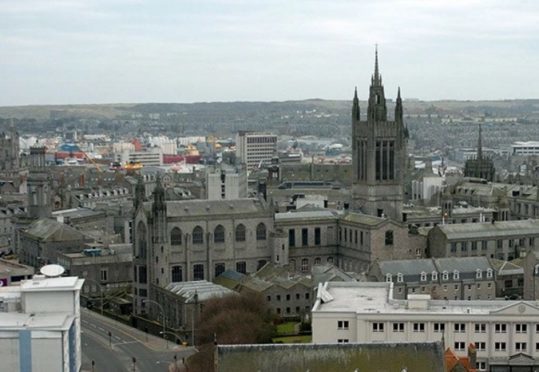Aberdeen marked the 15 month of decline in hotel occupancy rates as the crash in oil and gas prices continued to take its toll on the local hospitality industry.
Average occupancy of Granite city hotel rooms was just 55.7% in February, down almost 20% on the same time last year, according to the monthly LJ Forecaster Scottish Intercity Report.
However the report revealed some resilience in the Aberdeen hotel sector relative to the rest of the country.
The average room rate (ARR) in Aberdeen remained above Glasgow’s, despite tumbling 22.9% to £72.46. However, the double whammy of contractions in both occupancy and rates saw hoteliers’ revenue per available room (RevPAR) – a key industry measure of profitability – fall 37.7% to £40.39.
Sean Morgan, Managing Director at LJ Research, said: “In Aberdeen occupancy was most affected by the continued loss of corporate demand linked to the oil and gas sector. Hoteliers in the Granite City recorded their fourth consecutive month of 30%-plus reductions in RevPAR which highlights the extent to which the hotel sector is feeling the financial strain of the energy sector’s woes.”
In comparison, the hotel performance tracker showed that hotels in Scotland’s two largest cities minimised the impact of occupancy reductions by growing room rates.
Glasgow achieved the highest room occupancy in February (74.7%) despite falling by 2.3% compared to last year. In Edinburgh, occupancy also recorded a drop (4.9%) on last year as hotels sold 68.7% of their room stock.
Despite recording occupancy losses, Edinburgh and Glasgow hotels achieved increases in their ARRs. The cost of a room in February 2016 was highest in the capital as ARR of £85.18 was achieved – this was a 3.9% increase from last year. Glasgow saw a slightly higher increase of 4.5% which produced on ARR of £67.02.
RevPAR declined slightly in Edinburgh, by 1.2% to £58.54, and rose slightly in Glasgow, by 1.7% to £50.07.
Looking ahead, the tourism market research firm found that all three Scottish cities saw reductions in forward bookings for the next three months compared to figures from this time last year. Aberdeen saw the largest decrease of 7.3% with Edinburgh and Glasgow trailing behind at 4.8% and 2.4%, respectively.
Mr Morgon added: “Following strong performance last month, hotels in Scotland’s two largest cities suffered lower occupancy compared to a year ago as business and leisure events contributed less to drive up demand for accommodation.
“There is a continued note of caution to Edinburgh hotels as sales on the books over the next few months were notably below last year’s level. This is also the case for Aberdeen. Meanwhile, in Glasgow there is evidence of flat or slightly higher demand over the next two months and indications of significantly fewer bookings for May.”
